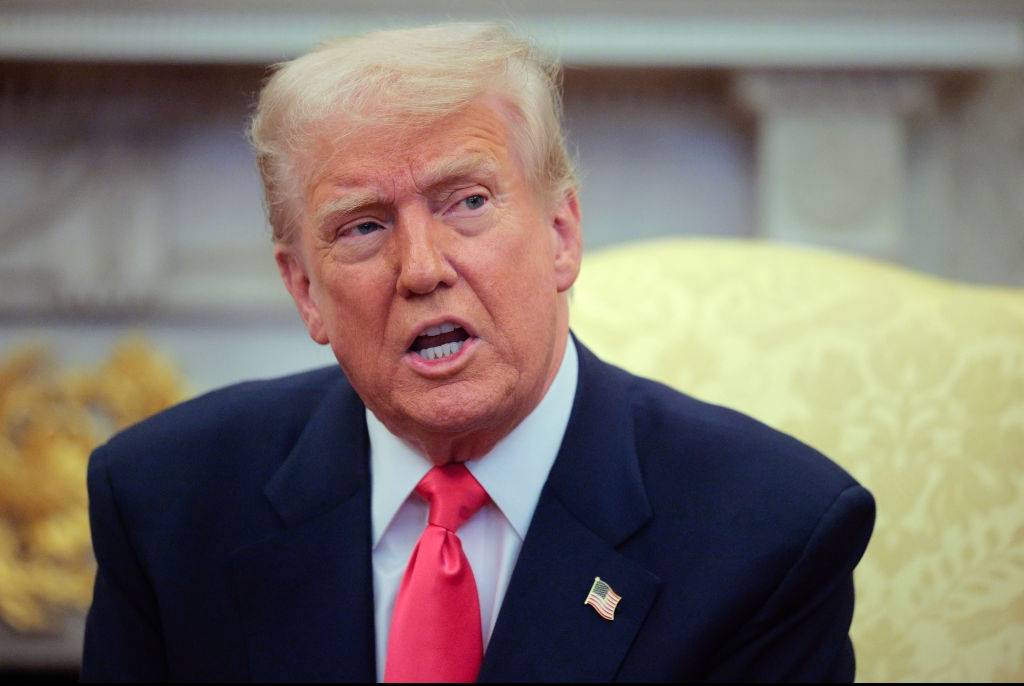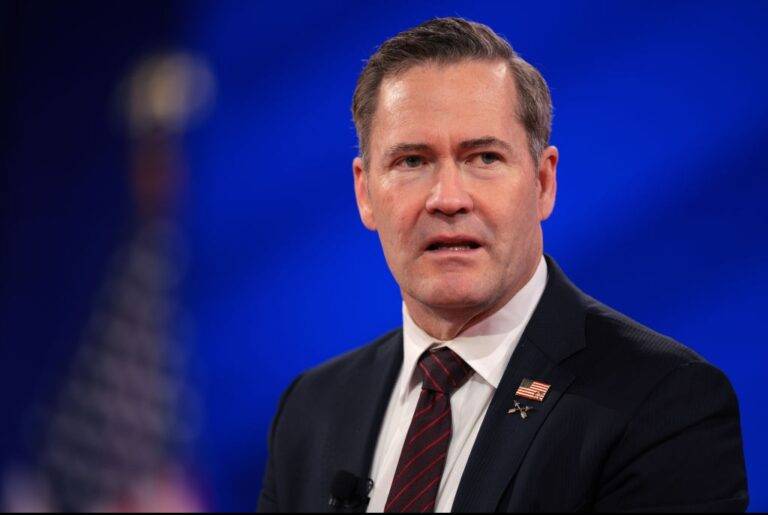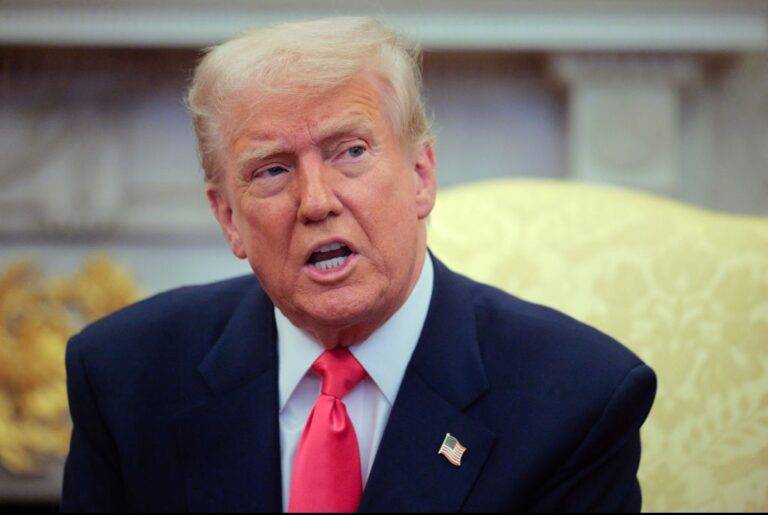
GettyImages 2204759784
The White House is looking into how a journalist was accidentally added to a private chat about war plans.
On Monday, Jeffrey Goldberg, the editor-in-chief of The Atlantic, revealed that he got a connection request on March 11 through the secure messaging app Signal from someone named ‘Michael Waltz.’
At first, Goldberg didn’t think it was the real Michael Waltz, who is President Donald Trump’s national security adviser, but he accepted the request anyway, thinking it might be important if it was actually Waltz trying to contact him privately.
Later, he was added to a group called ‘Houthi PC small group,’ which had 18 members, including people he believed were important figures like ‘MAR,’ who he thought was Secretary of State Marco Antonio Rubio, ‘JD Vance,’ ‘TG,’ who he thought was Tulsi Gabbard, and ‘Pete Hegseth.’ He also believed ‘Scott B’ was Treasury Secretary Scott Bessent.
The group was discussing policies and sharing sensitive details about military actions in Yemen, such as which weapons the U.S. would use and information about targets. The details were shared by someone with the name Pete Hegseth.
Although Goldberg wasn’t sure at first whether the group was real, he started to believe it was authentic when the members celebrated in the chat after U.S. bombs were dropped on Houthi militants in Yemen.
The Atlantic shared screenshots of messages from the group, and the National Security Council (NSC) said it believed the thread was real.
In a statement shared by NBC News, the NSC said: “At this time, the message thread that was reported appears to be authentic, and we are reviewing how an unintended number was added to the chain.”
A White House national security spokesperson also confirmed the text thread was legitimate, according to The Independent.
When asked about the incident and whether the information was classified, Pete Hegseth dismissed Goldberg, calling him a “so-called journalist” and saying, “Nobody was texting war plans, and that’s all I have to say about that.”
Defense Secretary commented, “This is the guy that peddles in garbage. This is what he does.”
Goldberg responded in an interview with MSNBC on Monday, saying, “He can say that it wasn’t a war plan, but it was a minute-by-minute account of what was about to happen, organized by CENTCOM [Central Command]. This is their plan, and he was sharing it with a bunch of civilian leaders.”
He added that Hegseth seemed to be “trying to distract from the fact that he participated in a conversation on an unclassified, commercial messaging app that you probably shouldn’t be using.”
The National Security Council concluded in its statement: “The thread shows the careful and thoughtful coordination between senior officials. The success of the Houthi operation proves there were no threats to our servicemembers or national security.”
Goldberg’s article reports that the user named JD Vance initially questioned the airstrike plans, saying, “I think we are making a mistake.” He raised concerns about oil prices rising and Europe benefiting from the U.S. protecting global shipping lanes.
However, the same account later replied to Pete Hegseth, saying, “If you think we should do it, let’s go.”
Vance’s office told NBC News that the vice president’s “first priority is always making sure that the President’s advisers are properly briefing him on their discussions.”
The statement continued: “Vice President Vance fully supports this administration’s foreign policy. The President and Vice President have since talked about this issue and are in complete agreement.”
President Trump claimed he had no knowledge of the situation, telling a reporter in the Oval Office on Monday, “You’re telling me about it for the first time.”
He later made a joke about the incident by sharing a post from Elon Musk criticizing the publication. Musk wrote: “Best place to hide a dead body is page 2 of The Atlantic magazine because no one ever goes there.”
It was reported that Trump eventually read the article, and White House press secretary Karoline Leavitt issued a statement on Monday, saying that the president “continues to have the utmost confidence in his national security team, including National Security Advisor Mike Waltz.”
Hillary Clinton, the former secretary of state and 2016 presidential candidate, who had previously faced strong criticism from Republicans for using a private email server, responded to the news by tweeting a screenshot of The Atlantic article and adding: “You have got to be kidding me.”
“I think Meghan is underestimated,” Sarandos said. “She has a global audience and a brand that resonates with many.”
Netflix has officially renewed With Love, Meghan for another season, signaling its commitment to the series despite the modest performance of season one.
The streaming giant’s decision shows confidence in the project’s long-term potential.
Meghan’s handwritten response strategy gives her a unique way to shape the public conversation — one personal note at a time.





